2025年 チュートリアル*
2025年3月17日(月) 午前8:30 - 10:00
TUT1: Na-ion Batteries: Materials and State of the Art
TUT1: NIB: 材料と最先端
Na-ion Batteries: Materials and State of the Art
Philipp Adelhelm, PhD, Professor, Institute of Chemistry, Humboldt-University Berlin
Na-ion batteries (SIB) are rapidly developing as potential alternatives to complement Li-ion battery (LIB) technology. The energy densities of SIB are close to LIB, but at the same time they avoid or reduce the amounts of many critical elements used for LIB. Due to their conceptual similarity, SIB can be produced on the same manufacturing lines as LIB, which is a great advantage for market implementation. This tutorial gives an overview on Na-ion battery development, with the focus on materials (anode, cathode) and electrolytes.
INSTRUCTOR BIOGRAPHIES:
 Philipp Adelhelm, PhD, Professor, Institute of Chemistry, Humboldt-University Berlin
Philipp Adelhelm, PhD, Professor, Institute of Chemistry, Humboldt-University Berlin
TUT2: Battery Safety & Abuse Tolerance Validation
TUT2: バッテリーの安全性と乱用耐性の検証
Battery Safety and Abuse Tolerance Validation
Shmuel De-Leon, CEO, Shmuel De-Leon Energy Ltd.
Batteries have become daily use components for many applications. New growing segments like EV and grid storage batteries extend the traditional ordinary battery applications. In the race for energy density, we shouldn't forget safety. For example, the Samsung Galaxy Note 7 battery safety case. Unfortunately, we face daily safety events with injuries and severe damage. This workshop focuses on portable, stationary, and automotive battery safety along the battery cycle life (acceptance, testing, assembly, use, transportation, and disposal). This training incorporates Shmuel De-Leon’s and other experiences on battery safety, representing over 26 years of work in the field. The motivation behind the training is to provide attendees with the knowledge needed to safely handle the batteries in their organization, and to support reduction in safety events.
INSTRUCTOR BIOGRAPHIES:
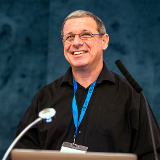 Shmuel De-Leon, CEO, Shmuel De-Leon Energy Ltd.
Shmuel De-Leon, CEO, Shmuel De-Leon Energy Ltd.
TUT3: Economics of Battery Material Development & Manufacturing
TUT3: バッテリー材料の開発と製造の経済性
Technoeconomic Analysis: Effective Development and Commercialization Pathways for New Battery Technologies
Thomas D. Gregory, Owner and Consultant, Borealis Technology Solutions LLC
This tutorial will cover factors that impact successful commercialization of battery materials, technological feasibility vs. economic practicality, and market need/company capability intersection, as well as technoeconomic analysis methodology, focusing on the critical early stages of a project where product design and process chemistry and development occur amid significant technical and economic uncertainty.
INSTRUCTOR BIOGRAPHIES:
 Thomas D. Gregory, Owner and Consultant, Borealis Technology Solutions LLC
Thomas D. Gregory, Owner and Consultant, Borealis Technology Solutions LLC
TUT4: In-Depth Analysis of the Chinese xEV Battery Industry
TUT4: 中国のxEVバッテリー業界の詳細分析
In-Depth Analysis of the Chinese xEV Battery Industry-From Applications to Upstream Materials
Mark Lu, PhD, Senior Industrial Analyst, Industrial Economics & Knowledge Center, Industrial Technology Research Institute
As the world’s biggest EDV market, Chinese xEV industry has become the most important pioneering target. However, specially planned economy, localized regulations, and multiple business models exist and make international companies’ decision-making more difficult. Therefore, this tutorial will try to provide a whole picture of the Chinese EDV battery market, including policies and regulations, future forecasts, competitive analysis, battery technology strategies, upstream supply chain, and positioning for foreign enterprises.
INSTRUCTOR BIOGRAPHIES:
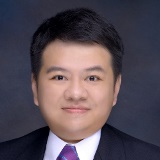 Mark Lu, PhD, Senior Industrial Analyst, Industrial Economics & Knowledge Center, Industrial Technology Research Institute
Mark Lu, PhD, Senior Industrial Analyst, Industrial Economics & Knowledge Center, Industrial Technology Research Institute
2025年3月17日(月) 午前10:30 - 12:00
TUT5: Solid-State Batteries
TUT5: SSB
Solid-State Batteries
Venkataraman Thangadurai, PhD, Chair in Energy & Faraday Institution; Adjunct Professor, School of Chemistry, University of St. Andrews
In this tutorial lecture, the development of state-of-the-art solid-state Li-ion and Na-ion electrolytes for all-solid-state batteries with emphasis on ionic conductivity and chemical and electrochemical stabilities will be discussed.
INSTRUCTOR BIOGRAPHIES:
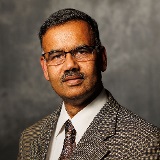 Venkataraman Thangadurai, PhD, Chair in Energy & Faraday Institution; Adjunct Professor, School of Chemistry, University of St. Andrews
Venkataraman Thangadurai, PhD, Chair in Energy & Faraday Institution; Adjunct Professor, School of Chemistry, University of St. Andrews
TUT6: Technical Approaches to Li-ion Battery Recycling
TUT6: LIBのリサイクルへの技術的アプローチ
Technical Approaches to Li-ion Battery Recycling
Eric Gratz, PhD, Co-Founder & CTO, Ascend Elements
The tutorial will detail how spent batteries are transformed into new materials and reintroduced into the battery supply chain. The tutorial will overview both pyro and hydrometallurgical processes, as well as new innovations in recycling and sustainable battery materials engineering.
INSTRUCTOR BIOGRAPHIES:
 Eric Gratz, PhD, Co-Founder & CTO, Ascend Elements
Eric Gratz, PhD, Co-Founder & CTO, Ascend Elements
TUT7: Understanding the Future of Battery Cell Cost & Assessing the Economic Feasibility of Emerging Technologies
TUT7: バッテリーセルにおける将来コストの理解、新興技術の経済的な実現可能性の評価
Understanding the Future of Battery Cell Cost and Assessing the Economic Feasibility of Emerging Technologies
Rory McNulty, Senior Analyst, Benchmark Mineral Intelligence
This tutorial will discuss raw material price volatility and its impact on LIB cell cost. In addition, understanding key cell cost drivers and forecasting cost of traditional LIBs and exploring the role that recycled material (and legislation) will play in future battery cell cost will be covered. A walkthrough of key emerging technologies-similarities and differences in raw materials and manufacturing and a breaking down cost on a kWh and cell lifetime basis-defining cost competitiveness by application and performance requirements will be discussed as well as LIB cost scenarios-exploring the feasibility of emerging technologies in possible future price environments.
INSTRUCTOR BIOGRAPHIES:
 Rory McNulty, Senior Analyst, Benchmark Mineral Intelligence
Rory McNulty, Senior Analyst, Benchmark Mineral Intelligence
TUT8: Cell & Pack Design
TUT8: セル・パック設計
Cell & Pack Design for xEVs
Kevin Konecky, Vice President, Battery Systems Engineering, Ola Electric
This tutorial will give an overview of battery systems design. An overall product development process will be discussed for a typical system. Design aspects of each individual subsystem will be explored with cost impacts of different design choices. Testing, validation, and designing for safety will be other key areas of discussion.
INSTRUCTOR BIOGRAPHIES:
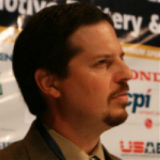 Kevin Konecky, Vice President, Battery Systems Engineering, Ola Electric
Kevin Konecky, Vice President, Battery Systems Engineering, Ola Electric
2025年3月17日(月) 午後1:30 - 3:00
TUT9: Improving the Energy Density of Batteries with Silicon-Based Anodes
TUT9: シリコンベースのアノードによるバッテリーのエネルギー密度の向上
Improving the Energy Density of Batteries with Silicon-Based Anodes
Dee Strand, PhD, CSO, R&D, Wildcat Discovery Technologies, Inc.
The key challenges in the use of silicon-based anodes, as well as progress in the implementation of silicon and what can we expect in the future. The latest improvements in other battery components are required to maximize the benefit of silicon-based anodes.
INSTRUCTOR BIOGRAPHIES:
 Dee Strand, PhD, CSO, R&D, Wildcat Discovery Technologies, Inc.
Dee Strand, PhD, CSO, R&D, Wildcat Discovery Technologies, Inc.
TUT10: Li-ion Cell Design and Manufacturing
TUT10: Liセルの設計と製造
Li-ion Cell Design and Manufacturing: Processes, Equipment, and Quality Control
James Kaschmitter, CEO, SpectraPower LLC
This tutorial will begin with an overview of Li-ion cell design for performance and manufacturability, including contrasting the performance and characteristics of commonly used materials. The tutorial will then lead to a detailed review of Li-ion cell manufacturing, from incoming raw materials through final cell formation, aging, and shipment.
INSTRUCTOR BIOGRAPHIES:
 James Kaschmitter, CEO, SpectraPower LLC
James Kaschmitter, CEO, SpectraPower LLC
TUT11: Li-ion Battery Safety & Thermal Runaway
TUT11: LIBの安全性と熱暴走
Li-ion Battery Safety & Thermal Runaway
Ahmad Pesaran, PhD, Chief Energy Storage Engineer, National Renewable Energy Laboratory
Application of lithium-ion batteries (LIB) in electrified transportation and renewable grid is growing at a very fast pace for decarbonization of the passenger vehicles by 2035. Due to the characteristics of current LIB technologies, although rare, there is potential for thermal runaway and fires, as seen by recent fires in Tesla Model S, Chevy Bolt, and grid storage system in an Arizona Utility. Increased severity of fire incidents with more advanced energy-dense LIBs, especially cathodes with higher Ni, and anodes with silicon or lithium, is expected.
In this tutorial/seminar we will: 1.) discuss fundamental causes for safety issues leading to thermal runway and fire, 2.) review abusive behavior of cells and packs through characterization, testing, and modeling/simulations, 3.) provide overview of approaches that could reduce safety risks and detect impending failures, and 4.) provide references as a resource for accessing more information.
This tutorial/seminar is provided by Dr. Ahmad Pesaran with 25+ years’ experience in lithium-ion battery R&D including safety testing and modeling with perspectives of his participation at USABC Technical Advisory Committee. He will provide the audience with information and understanding needed to handle Li-ion battery safety in both their work at their companies and in products they deliver to the market.
TOPICS TO BE COVERED:
LIB Applications LIB Introduction
a. Battery Fundamentals
b. Battery Chemistries
c. Cell Designs
LIB Safety and Abuse
a. LIB Fires
b. Instigators for Thermal Runaway
c. Battery Abuse Characterization and Testing Equipment
d. Battery Abuse Modeling/Simulation Tools
Approaches for Designing Safer Cells and Modules-Recent Progress of EV Pack and System Safety
Remarks on Safe Handling of LIBs
Summary
INSTRUCTOR BIOGRAPHIES:
 Ahmad Pesaran, PhD, Chief Energy Storage Engineer, National Renewable Energy Laboratory
Ahmad Pesaran, PhD, Chief Energy Storage Engineer, National Renewable Energy Laboratory
TUT12: Recycling Market & Methods
TUT12: リサイクル市場と方法
xEV Lithium-ion Recycling Market & Methods
Steve Sloop, PhD, President, OnTo Technology LLC
By 2030 the original lithium-ion battery manufacturing industry is on course to reach $120 billion worldwide. However, with so many uncertainties, the recycling market has projections of $14 to $40 billion. Recycling must be economically sustainable with future $10/kg cathodes, can it achieve such a goal? A supportive recycling industry will be expected to (1) operate with end-of-life batteries as an asset (2) produce cost-competitive elements, electrodes, or electrode precursor materials, (3) safely address large-scale throughputs, and (4) accommodate low cobalt or no cobalt cathode formulations. This tutorial will comprehensively address technologies of pyrometallurgy, hydrometallurgy, hybrid approaches, and direct recycling. The instructor will introduce these and discuss them in light of cost goals and market realities.
INSTRUCTOR BIOGRAPHIES:
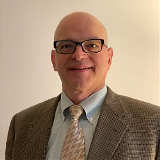 Steve Sloop, PhD, President, OnTo Technology LLC
Steve Sloop, PhD, President, OnTo Technology LLC
2025年3月17日(月) 午後3:15 - 4:45
TUT13: Latest Regulatory and Legislative Developments on the Safe Transport, Storage, Collection & Recycling of Lithium Batteries
TUT13: リチウムバッテリーの安全な輸送・保管・回収・リサイクルに関する最新の規制と立法の動向
Latest Regulatory and Legislative Developments on the Safe Transport, Storage, Collection & Recycling of Lithium Batteries
Marcus Boolish, Policy Advisor, Wiley Rein LLP, PRBA Rechargeable Battery Association
There have been substantive regulatory and legislative developments associated with the lithium battery transport regulations, fire and building codes, and battery collection and recycling mandates that will impact every company involved with manufacturing, testing, shipping, transporting, and storing of new and used lithium batteries in the United States. This tutorial will address all these changes and provide practical solutions for complying with these new regulatory requirements.
INSTRUCTOR BIOGRAPHIES:
 Marcus Boolish, Policy Advisor, Wiley Rein LLP, PRBA Rechargeable Battery Association
Marcus Boolish, Policy Advisor, Wiley Rein LLP, PRBA Rechargeable Battery Association
TUT14: Virtual Analysis of Cell Aging and Cell Behaviors for the Selection and Development of Long-Life Cells
TUT14: 長寿命セルの選択と開発におけるセルの老朽化とセルの作用のバーチャル分析
Virtual Analysis of Cell Aging and Cell Behaviors for the Selection and Development of Long-Life Cells
Luke Hu, Co Founder & GM, Global Business, Electroder Ltd.
Today announcements of 10,000-15,000 cycle cells are not uncommon. System manufacturers need better technical approach to evaluate and conduct due diligence on the parts they purchase. Cell manufacturers need better tools to develop long-life products. In this presentation, we introduce a new digital technology to address one of the most critical challenges in the battery industry: efficient and accurate prediction of cell life and aging behavior under various conditions.
INSTRUCTOR BIOGRAPHIES:
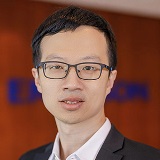 Luke Hu, Co Founder & GM, Global Business, Electroder Ltd.
Luke Hu, Co Founder & GM, Global Business, Electroder Ltd.
TUT15: Global EV Market Demand: In-Depth Insights, Future Projections & the Impact on the Battery Supply Chain
TUT15: 世界のEV市場の需要: 詳細な見解、将来予測、バッテリーサプライチェーンへの影響
Global EV Market Demand: In-Depth Insights, Future Projections, and the Impact on the Battery Supply Chain
Viktor Irle, Co-Founder & Market Analyst, EV Volumes
Rob Price, Global Key Account Manager, EV Volumes
This interactive tutorial will provide a comprehensive analysis of the latest data and trends in the EV industry. You’ll gain insights into top-selling models, identify the countries and regions leading in EV adoption, and understand what the future holds both in the short and long term. Additionally, we will translate these forecasts into actionable insights regarding battery demand, equipping you with a well-rounded understanding of the evolving landscape of electric vehicles. This tutorial is designed to deepen your knowledge and stay ahead in the rapidly changing EV market globally.
INSTRUCTOR BIOGRAPHIES:
 Viktor Irle, Co-Founder & Market Analyst, EV Volumes
Viktor Irle, Co-Founder & Market Analyst, EV Volumes
 Rob Price, Global Key Account Manager, EV Volumes
Rob Price, Global Key Account Manager, EV Volumes
* チュートリアルには、All Access登録または別途登録が必要
* 不測の事態により、事前の予告なしにプログラムが変更される場合があります。
アジェンダ・講演者・スポンサー更新















 Next-Generation Battery Research
Next-Generation Battery Research High-Performance Battery Manufacturing
High-Performance Battery Manufacturing Advances in Automotive Battery Applications
Advances in Automotive Battery Applications Battery Safety
Battery Safety
